|
“Bibliotherapy is a term that describes the very real process of being positively and therapeutically influenced by what you read. As stated earlier, when it is at its most powerful, bibliotherapy is also relationally healing. It can rescue you from the common Cptsd feeling of abject isolation and alienation.” ― Pete Walker, Complex PTSD: From Surviving to Thriving Learning about complex trauma can increase self-compassion for your own trauma or understanding of a loved-one's experience. If you're ready to take a dig deeper, here are the books I recommend as a trauma therapist in Oakland, CA: Approachability scale You don't need to be super into psychology to benefit ❤️❤️❤️ More heavy on theory and/or science ❤️❤️ Intense and dense (and great!) ❤️ Trauma and Recovery: The Aftermath of Violence - From Domestic Abuse to Political Terror by Judith Herman ❤️❤️
Trauma and Recovery by Judith Herman provides a comprehensive understanding of trauma, drawing on extensive research, clinical observations, and firsthand accounts of trauma survivors. The book examines different forms of trauma, including interpersonal trauma such as domestic violence, sexual abuse, and war-related trauma. One of the central concepts in the book is the notion of complex trauma or complex post-traumatic stress disorder (C-PTSD), which refers to the long-lasting effects of chronic trauma, particularly when experienced in the context of relationships and systems of oppression. Herman emphasizes the profound impact of trauma on a person's sense of self, relationships, and ability to function in the world. What I love the most: Herman takes a sociopolitical approach noting how trauma is unequally experienced by marginalized communities. The Body Keeps the Score: Brain, Mind, and Body in the Healing of Trauma by Bessel van der Kolk ❤️❤️
The Body Keeps the Score by Bessel van der Kolk delves into the profound effects of traumatic experiences on individuals, ranging from childhood abuse and neglect to war-related trauma and other types of violence. Van der Kolk draws upon his extensive research and clinical experience to present a comprehensive understanding of how trauma can shape a person's biology, neurology, and psychology. The book emphasizes that trauma is not merely a psychological issue but also manifests in physical and somatic symptoms. Van der Kolk explores the ways in which trauma disrupts brain function, alters the stress response system, and can lead to various mental health disorders such as post-traumatic stress disorder (PTSD), anxiety, and depression. He also discusses the impact of trauma on memory, relationships, and self-perception. What I love the most: This book revolutionized the understanding of trauma which has refocused trauma healing away from only focusing on cognitive, front-brain approaches. My Grandmother's Hands: Racialized Trauma and the Mending of Our Bodies and Hearts by Resmaa Menakem ❤️
The central premise of "My Grandmother's Hands" is that trauma is not only psychological but also resides within the body. Menakem argues that centuries of racialized trauma have been passed down through generations, affecting not only people of color but also white individuals. He uses the metaphor of the body to explore how trauma manifests itself in different ways, impacting relationships and perpetuating systemic inequalities. The book focuses on three different groups: black Americans, white Americans, and police officers. Menakem delves into the historical roots of racial trauma, such as slavery, oppression, and the ongoing consequences of racism. What I love the most: Menakem's look at trauma demonstrates how pervasive trauma is and looks at our history and ongoing culture as culprits. Menakem makes it clear that trauma is not an individual problem, but a collective one. Complex PTSD: From Surviving to Thriving by Pete Walker ❤️
In Complex PTSD: From Surviving to Thriving, Pete Walker draws from his personal experience as a survivor and his professional expertise to provide insights and strategies for healing from complex trauma. The book aims to empower individuals who have experienced ongoing trauma by offering validation, guidance, and hope for recovery. The book explores various aspects of complex trauma, including its impact on emotional, psychological, and relational well-being. Walker discusses common symptoms and struggles experienced by individuals with complex trauma, such as emotional flashbacks, dissociation, hyperarousal, self-criticism, and difficulties with trust and boundaries. What I love the most: Walker draws on personal experience in addition to research and clinical experience creating an empathetic, approachable read. Healing the Fragmented Selves of Trauma Survivors: Overcoming Internal Self-Alienation by Janina Fisher ❤️❤️
In Healing the Fragmented Selves of Trauma Survivors, Janina Fisher explores the concept of dissociation and its role in trauma. Dissociation refers to a disconnection or separation from one's thoughts, feelings, memories, or sense of self as a way to cope with overwhelming or traumatic experiences. This fragmentation of the self can lead to a fragmented sense of identity and a lack of integration. The book delves into the various ways in which trauma survivors may experience fragmentation, such as having distinct parts or selves with different beliefs, emotions, and memories. Fisher explains how these fragmented selves can contribute to internal conflicts, self-sabotage, and difficulties in relationships and daily functioning. What I love most: Fisher's love and compassion toward her clients is felt throughout the book. She focuses on the ways those who have experienced trauma have suffered and have been resilient and encourages everyone else to do the same. Trauma and the Soul: A psycho-spiritual approach to human development and its interruption by Donald Kalsched ❤️❤️❤️
In Trauma and the Soul: A psycho-spiritual approach to human development, Donald Kalsched explore the dissociative splitting of that occurs during developmental trauma. This dissociative splitting is not simply a defensive mechanism stemming from our struggle with the harsh realities of life, as Freud suggested. Instead, it is an enduring aspect of human experience—a mysterious phenomenon that frequently lies at the core of the healing process. According to Kalsched, there exists within us an essential aspect—a core of innocence and vitality—that becomes disconnected from our conscious awareness during traumatic experiences. However, he suggests that this core is preserved within our subconscious, awaiting rediscovery at a later stage when we are ready to process the overwhelming events that occurred in the past. What I love the most: Kalsched draws on psychodynamic/psychoanlytic approaches but transforms the conversation from more shame/blame way of talking about patients and focuses on the intelligence of trauma response. Kalsched also draws on the ineffable experiences of many who have experienced trauma, giving trauma healing a deeper soul-based orientation. Book on Complex Trauma
0 Comments
Leave a Reply. |
AuthorStephanie Bain, LMFT Archives
April 2024
Categories
All
***Resources are not a substitute for therapy and are not intended for making diagnoses or providing treatment. Not all practices and tools are suitable for every person. Please discuss exercises, practices, and tools with your individual therapist or health care provider.
|
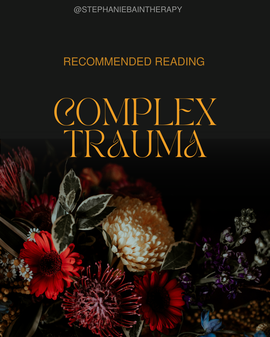
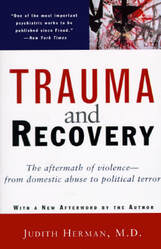
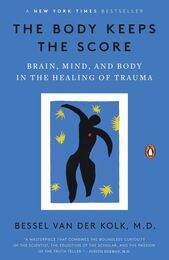
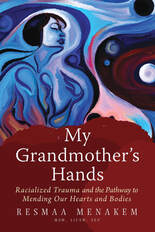
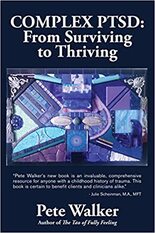
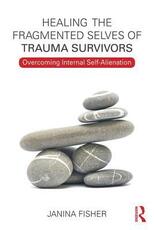
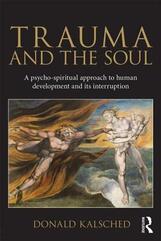

 RSS Feed
RSS Feed